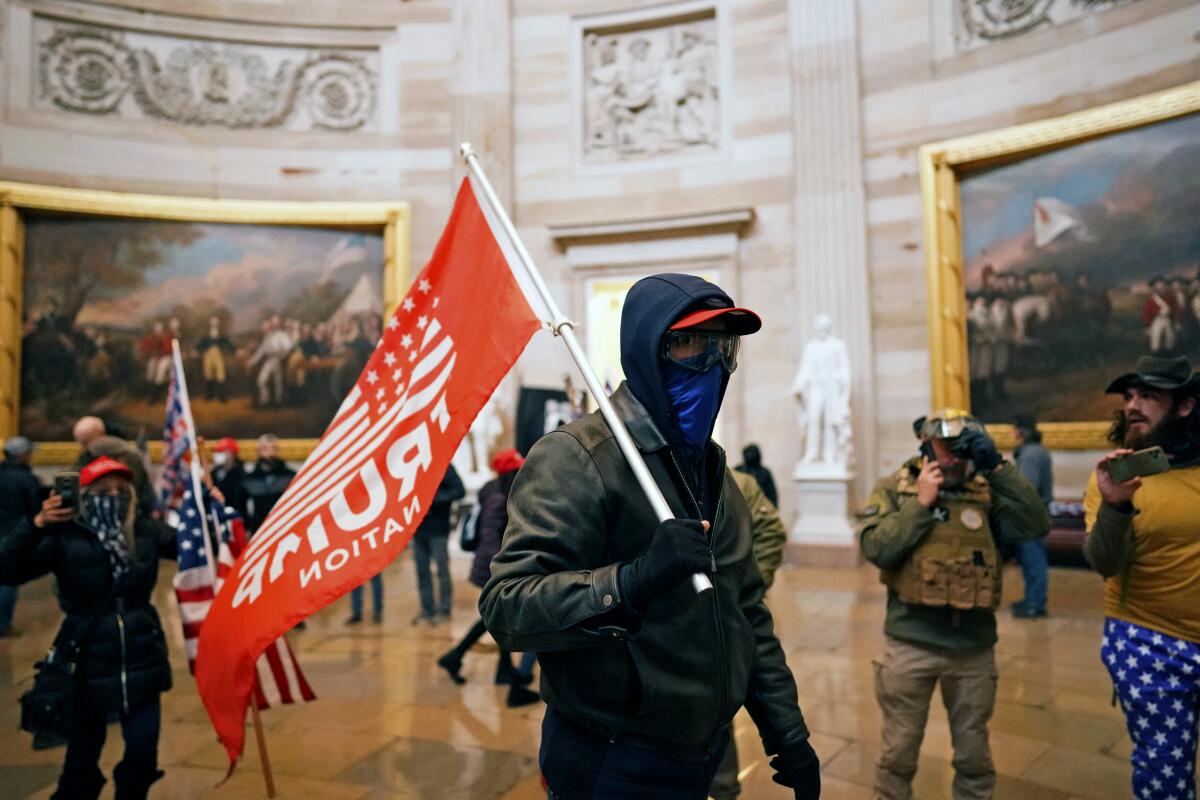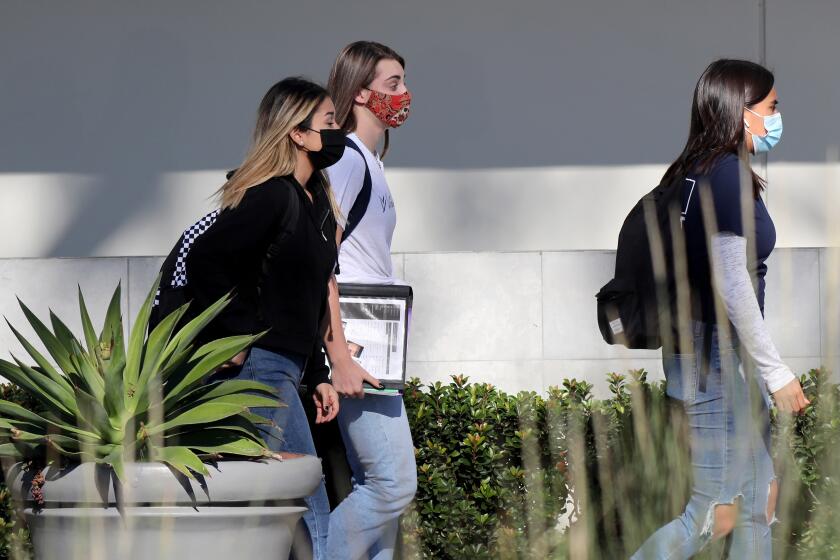Following attacks on voting rights and election process, UCI opens free speech and fair elections center

- Share via
Following the U.S. Capitol riot and moves across the country to undermine trust in elections, a pair of UC Irvine professors has started an academic center that will focus on the two most important tenets of democratic societies — fair elections and free speech.
The aptly named Fair Elections and Free Speech Center will host public events, publish reports and provide legal support to the university’s law clinics, while also focusing on international threats to democratic elections and speech issues.
“With the attack on voting rights in the United States, and the attacks on democratic institutions worldwide, I think the center’s going to be extremely well-placed to do the kind of research and public education that articulates what needs to be done to protect democracy in the U.S. and worldwide,” UC Irvine law professor David Kaye said this week during a phone interview.
Kaye is co-directing the center along with UC Irvine law professor Rick Hasen, one of the country’s leading election law scholars. Kaye cited a number of crises that influenced their decision to found the center, including the Jan. 6 Capitol insurrection. He also noted that there have been efforts in several states to make it more difficult for people to vote.
The board voted Tuesday night to pursue a legal challenge to Gov. Gavin Newsom’s ongoing assertion of emergency rule-making powers due to the coronavirus pandemic, specifically the school mask mandate.
The Justice Department filed a lawsuit in late June challenging a Georgia law for discriminating against Black voters. The new law — which allegedly restricts the distribution of absentee ballots — was signed into law by Republican Gov. Brian Kemp after President Trump spent months railing against the outcome of the presidential election he lost. His followers have continued to claim the election was fraudulent, a belief that fueled the storming of the Capitol building.
“I think that the 2020 election demonstrated that disinformation about free and fair elections is a major problem,” Hasen said. “Political operatives can manipulate the current information environment on social media for cynical political ends ... This is a moment where we need to think carefully about how to balance our interest in free speech and robust election contests with dangerous disinformation about election integrity.”
During and following the 2020 presidential election, some Republican politicians and conservative media members have spread misleading information on social media to cause distrust in the election process, particularly taking aim at mail-in ballots.
In response, social media companies have been pressured to more adequately regulate false content posted on their sites. However, there may be a tricky balance between maintaining 1st Amendment rights and policing misinformation on social media.
“You can’t have a vibrant democracy unless people can engage in free and relatively uninhibited debate,” Hasen said. “That’s a cornerstone of democratic governance, is that people can try to convince each other and argue over who’s the best candidate to be elected to office. But we also have an unprecedented problem with virally spread misinformation, as well as a collapsing market in traditional journalism, especially on the local level.
“The technological revolution of the last couple of decades has decimated the business model of local journalism. So voters have a much harder time getting reliable information, and false information tends to be more easily spread. The challenge is figuring out how you can provide voters with the information they need, while keeping out deliberately spread misinformation without trampling on rights of free speech protected by the 1st Amendment.”
The center will produce reports on free speech and election issues, and will possibly be involved in litigation, preparing amicus briefs and other work with the school’s law clinics.
In addition to its research, the center will regularly hold public discussions, conferences and speaker series. There are currently four virtual events slated for the university’s fall semester, including a lunchtime series on “Global Elections” starting Sept. 1, “Is the U.S. Constitution Up to the Task of Preserving American Democracy?” on Sept. 9, “Election Subversion: Is American Democracy in Danger?” on Sept. 24 and “Disinformation in Elections: How Big a Problem is it and What Should Be Done?” on Oct. 6.
Kaye said the center will partner with various departments at the university. The center’s advisory board includes members at the law school and computer science, history and political science departments.
“The goal is to recognize that election law and the pressures on voting are not just matters of statutes and the Constitution but also matters of history and politics,” Kaye said. “Since so much debate is mediated online, it’s also a matter of the role played by companies like Facebook and YouTube and Twitter and so forth. So, we plan to really involve a whole range of experts and expertise to do this kind of work.”
All the latest on Orange County from Orange County.
Get our free TimesOC newsletter.
You may occasionally receive promotional content from the Daily Pilot.





